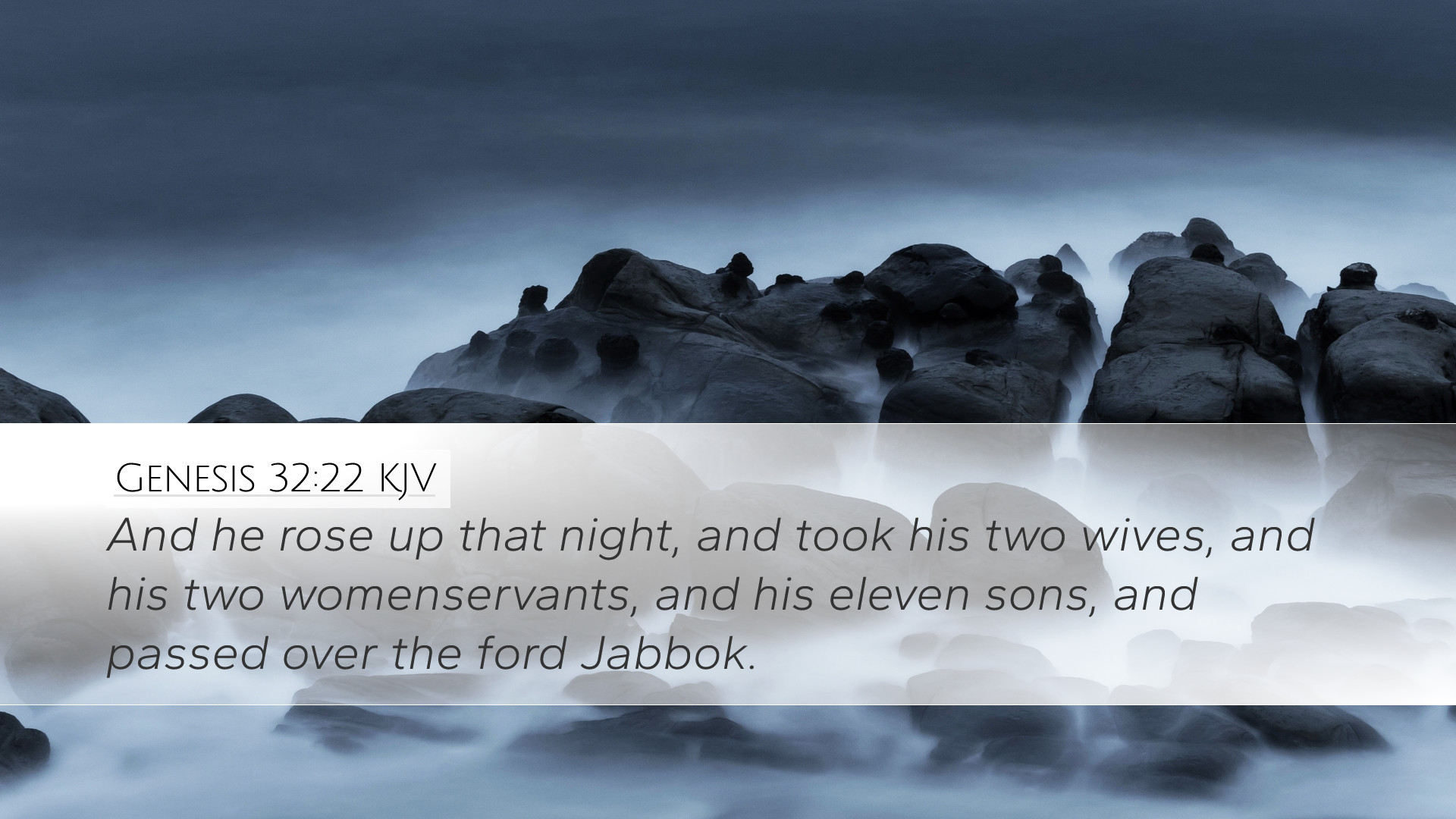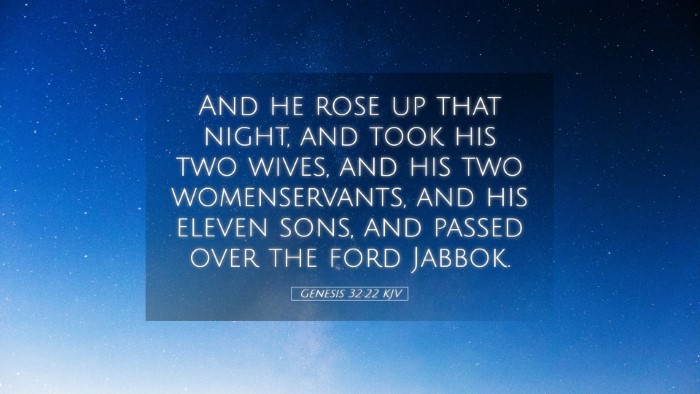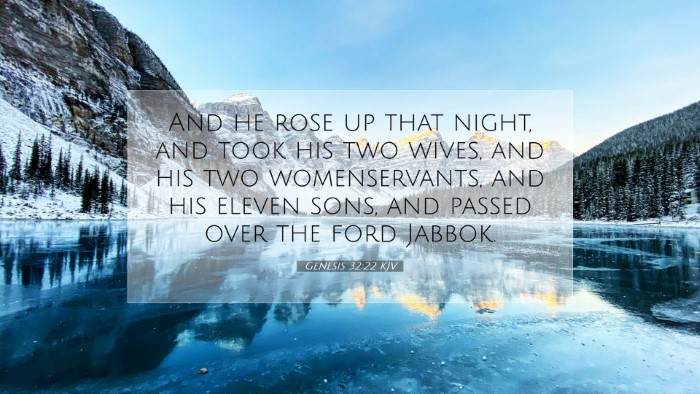Commentary on Genesis 32:22
Verse Context: Genesis 32:22 reads: "And he rose up that night, and took his two wives, and his two womenservants, and his eleven sons, and passed over the ford Jabbok." This verse occurs at a pivotal moment in Jacob’s life, where he prepares to face his estranged brother Esau.
Historical Background
Matthew Henry emphasizes the significance of the “ford Jabbok” as a geographical marker of Jacob’s transition, representing a passage not only geographically but spiritually. Jacob’s journey back to Canaan symbolizes his confrontation with the past, particularly with his brother Esau, whom he had deceived earlier in life.
Theological Insights
- Preparation for Encounter: Henry notes that Jacob was deeply aware of the imminent encounter with Esau and, therefore, strategically prepared by separating his family into groups. This highlights a theme of thoughtfulness and prudence in the face of potential danger.
- Significance of Family: The mention of Jacob’s wives and sons shows the importance of family unity and the responsibility Jacob felt towards them. This is foundational as leaders must consider the welfare of those they lead.
- Divine Compositions: Adam Clarke points out the necessity for Jacob to engage in prayer and reflection. This section illustrates Jacob's dependence on God amidst uncertainty. The act of passing over the Jabbok serves as a physical manifestation of his internal struggle.
Spiritual Applications
- Facing Past Decisions: Just like Jacob, individuals must sometimes revisit painful past decisions. Clarke emphasizes reflection and repentance as key to spiritual growth.
- Divine Encounter: The narrative suggests that moving into challenging situations can lead to profound spiritual encounters with God, a theme supported by Barnes who states that Jacob’s struggles were tied closely to his encounter with God later that night.
- Leadership Lessons: As a father, Jacob’s decision-making impacts his entire family's spiritual and emotional well-being, portraying the leadership responsibilities ingrained in familial structures.
Legacy of Jacob’s Encounter
The crossing of the Jabbok highlights a moment crucial not only for Jacob but for Israel as a nation. Clarke suggests that Jacob's transformation is essential for understanding the broader story of the Israelites. Jacob, later named Israel, becomes the patriarch of God's chosen people, a testimony of transformation through struggle.
Reflections on Human Struggle
Various commentaries reflect that Jacob’s night of wrestling signifies the human struggle with doubt, fear, and hope. Barnes describes this as an archetype for believers today; in our struggles, we encounter God profoundly. Each struggle not only leads to potential victory but also shapes our identity and faith.
Conclusion
Genesis 32:22 serves as an essential verse that sets the stage for one of the most significant encounters with God in the Old Testament. Jacob's actions exemplify preparation, reflection, and the need for divine assistance as he faces his past and pursues reconciliation.


